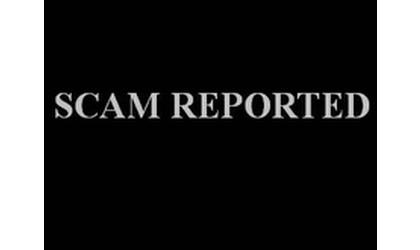(KAIR)--The answer “yes” could prove costly down the road.
That's the warning offered by the Better Business Bureau regarding what's being called the “Can You Hear Me Now?” scam.
According to a press release from the agency, callers are placing calls that, when answered, attempt to trick the person answering to say the word “yes.”
While the scheme has long been used to target businesses into making purchase they don't want, such as office supplies, it's now being aimed at individuals.
The BBB says it's not immediately clear what gain the callers are seeking, but it's possible the use of the word “yes” could be used against would be victims in the future.
That single word could be edited to suit the needs of the scammers, who could falsely claim it was stated as an agreement to enter into some type of major purchase.
According to the BBB, the agency has received reports from consumers saying they have received phone calls claiming to offer a variety of services, ranging from vacation packages to warranties.
The caller claims to be having trouble hearing, asking their would be victim “can you hear me?” in an attempt to make the person say the word yes.
While no financial losses are immediately reported, the intent appears clear, with the Better Business Bureau saying those who receive such calls to provide no answers, and to instead hang up immediately.
BBB is offering consumers the following advice:
-
Use Caller ID to screen calls, and consider not even answering unfamiliar numbers. If it’s important, they will leave a message and you can call back.
-
If someone calls and asks “Can you hear me?”, do NOT answer “yes.” Just hang up. Scammers change their tactics as the public catches on, so be alert for other questions designed to solicit a simple “yes” answer.
-
Make a note of the number and report it to bbb.org/scamtracker to help warn others. BBB also shares Scam Tracker information with government and law enforcement agencies, so every piece of information is helpful in tracking down scammers.
-
Consider joining the Do Not Call Registry (DoNotCall.gov) to cut down on telemarketing and sales calls. This may not help with scammers since they don’t bother to pay attention to the law, but you’ll get fewer calls overall. That may help you more quickly notice the ones that could be fraudulent.
-
Check your bank and credit card statements regularly for unauthorized charges. It’s also a good idea to check your telephone and cell phone bills, as well. Scammers may be using the “Yes” recording of your voice to authorize charges on your phone. This is called “cramming” and it’s illegal.
© Many Signals Communications
MOST VIEWED STORIES
Three former Atchison Co employees arrested on felonies
One hospitalized, one jailed, after Atchison attack
Atchison man involved in fatal NW MO crash
Services set for Effingham woman killed in crash
Barricaded fugitive arrested in Jackson County
Two file to challenge local legislator
Fatal Atchison apt fire investigation continues
USD 415 board select new member
U.S. 36 work in Doniphan Co to impact motorists
Results from SE Nebraska contested Primary Elections
Fentanyl find nets four in two Atchison cases
Date set for signals switch at Hiawatha intersection
Flags to fly half staff Wednesday across KS
State Board approves land transfer agreements
Memorial Day enforcement hits KS roads
Contested races in Tuesday Primary Election in Nebraska
Richardson County Sheriff provides updates to Commissioners
LATEST STORIES
Tuition increase by KU, others in state
KS grad requirements updated after two decades.
Fentanyl find nets four in two Atchison cases
Armed felon found, arrested, in Jackson Co
Support sought for fire ravaged family
Potts first to file for Sheriff's seat in Atchison Co
Senator Slama won't endorse candidate in legislative race
Local author brings "Broken and Chained" to Falls City Saturday


 Printer Friendly
Printer Friendly
 Email to a Friend
Email to a Friend





